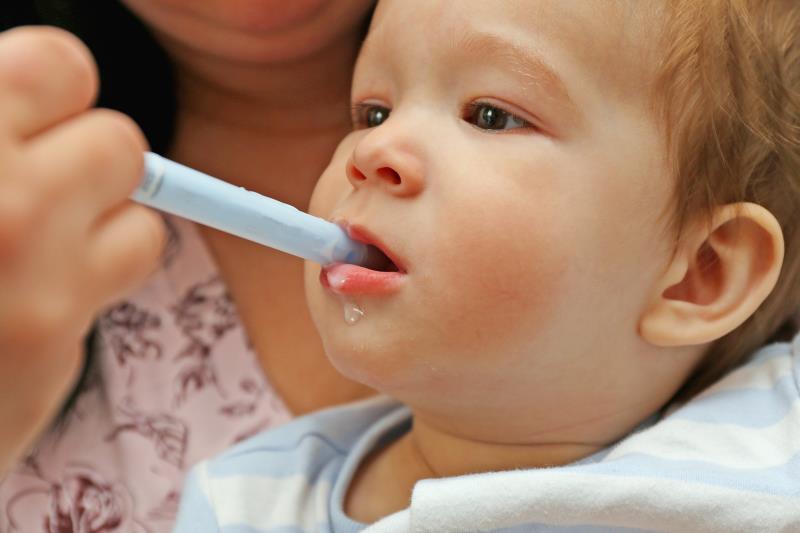
Repeated antibiotic exposure during early childhood (up to age 48 months) may lead to elevated body mass index (BMI) and obesity at 54 months, a prospective study from New Zealand showed.
Participants were 5,128 children (singletons, mean birth weight 3,527 g, 51 percent male) enrolled in the Growing Up in New Zealand study, 95 percent (n=4,886) of whom had received an antibiotic prescription by age 48 months. Information on antibiotic prescriptions, both among children and their mothers during pregnancy, was obtained from the New Zealand Pharmaceutical Collection database. Nine percent of the cohort (n=437) were obese at age 54 months.
Multivariable analyses of 4,398 participants showed that at age 54 months, mean BMI-for-age z scores (zBMI) increased with increasing exposure to antibiotics (no exposure: 0.87; 4–6 exposures: 1.06; p=0.02; 7–9 exposures: 1.06; p=0.02; >9 exposures: 1.08; p=0.01). [JAMA Network Open 2020;3:e1917577]
The elevated zBMI score with ≥9 antibiotic prescriptions (vs no exposure) was only significant among girls (mean, 1.00 vs 0.74; p=0.02).
Children who were dispensed >9 antibiotic prescriptions had an increased risk of obesity compared with those with no antibiotic exposure (adjusted odds ratio [adjOR], 2.41, 95 percent confidence interval, 1.07–5.41). Receipt of ≥2 antibiotic prescriptions during pregnancy also led to an increase in zBMI score in children compared with no exposure (mean, 1.08 vs 0.96; p=0.02), though this did not translate to an increased risk of overweight or obesity (adjOR, 1.65; p=0.05).
The risk of increased zBMI score was influenced by age at first exposure, with a higher score among those first exposed to antibiotics in the first year of life (mean, 1.06 vs 0.89 [no exposure]; p=0.03), and not when antibiotic exposure began after the first year of life (mean, 1.02; p=0.10 vs no exposure).
When compared with no type-specific exposure, zBMI was higher with receipt of >6 prescriptions of penicillin (mean, 1.09 vs 0.96; p=0.04) or ≥2 prescriptions of co-trimoxazole (mean, 1.11 vs 1.00; p=0.01). Obesity risk was elevated in children who received ≥2 prescriptions of macrolides or co-trimoxazole (adjOR, 1.61 and 1.52, respectively). These differences may be due to varying modes of action of antibiotics on bacteria, said the researchers.
“These findings are consistent with the notion that gut microbiota are susceptible to disruptions,” said the researchers. “Antibiotic exposures in early life can change the bacterial composition of the intestine (microbiome), potentially increasing the risk of childhood obesity … Such disruptions can occur via infant exposure to antibiotics and possibly via maternal antibiotic exposure, as infants acquire part of their early life microbiota from their mother,” they said.
“[As such,] antibiotic exposure may be a potentially modifiable risk factor for childhood obesity,” they continued, recommending that future studies look at whether interventions to reduce unnecessary antibiotic prescriptions in children could also reduce obesity prevalence in this population.
However, these results do not suggest that antibiotic exposure causes childhood obesity, noted Dr Meghan Azad from the Children’s Hospital Research Institute of Manitoba, Winnipeg, Manitoba, Canada, and Dr Arthur Owora from Indiana University, Bloomington, Indiana, US, in an editorial. “It is … important to acknowledge that childhood obesity results from multifactorial influences … [though the] potential role [of antibiotics] cannot be ignored,” they said. [JAMA Network Open 2020;3:1919694]
“It remains unclear whether antibiotics causally influence obesity development in humans and whether particular antibiotic types or time windows of exposure are especially detrimental. These nuances are important to understand because, although the associations appear to be modest, they could be meaningful at the population level,” they noted.